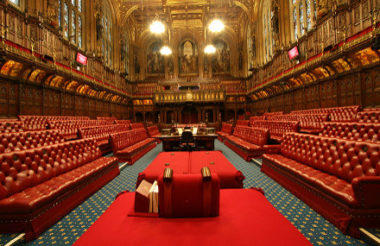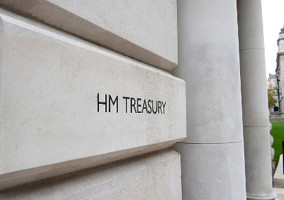Charities have “suspicions” about the government’s levelling up programme because of increasing tensions between politicians and the sector, a House of Lords committee heard yesterday.
Matt Whittaker, chief executive of Pro Bono Economics, was giving evidence to the House of Lords Public Services Committee inquiry on levelling up, alongside Dan Corry, chief executive of New Philanthropy Capital and Sir Stephen Bubb, acting director of the Oxford Institute for Charity.
All three said the relationship between the sector and the government should be improved.
Whittaker said there is an “attitude” that is “is ramping up the tension between civil society and government at the national level”.
He added that is “is really unfortunate” because civil society should be involved in levelling up initiatives, but “that tension is causing problems because I think there is suspicion within the sector, about what this thing is”.
A lot of the rhetoric “sounds like the things that people who work in society spend their lives caring about”, he said. “But there's a suspicion that those organisations and those individuals will be left on the outside looking in, and that's not helpful.”
Office for Civil Society 'downgraded'
Peers also heard how the Office for Civil Society, which oversees charity policy and sits within the Department for Digital, Culture, Media and Sport (DCMS), has become less influential.
Corry said it had been “missing” from the “cross departmental work on all these on all these initiatives”.
Bubb said: “There was an Office of the Third Sector and its first minister was Ed Miliband. It was then upgraded to a Minister of State in the Cabinet Office [under] Baroness Smith, since those days it's gradually been downgraded.
“And now, the minister is in the is in the House of Lords and the position is in DCMS. I think that says quite a lot about the role of government. And with the way government thinks of the sector and I think that is a problem.”
Importance of local politics
While charities are not involved in discussions at a national level, things are sometimes better at a local level.
Bubb said: “I think there are local authorities who have engaged with a public service reform agenda, they're very interested in those ideas. And that is still there. But it's not reflected nationally.”
Corry highlighted the positive aspects of devolution, using Andy Burnham, Labour mayor of Manchester as an example of someone “giving speeches recently about how much he's trying to work better with the voluntary sector”.
Building back better
Peers also heard how charities would need to be involved to help the country recover from the pandemic.
Whittaker said: “It's not about giving cash to the sector and saying okay get on with it. I think instead it's about saying let's have the sector as an equal partner in the discussion and debate about what levelling up means and how we go about achieving it.”
Bubb agreed: “Because of the pandemic because of the need to build back, they [government] will become more interested in charities and the potential that we have.”
However, he added that charities also need to improve their tactics.
“I think it also requires our sector to get better at engagement,” he said.
There are “two sides here” he added. “I don't think we're being as good as we should be as sector representatives at engaging with government, making the case, finding ways of making the case. So, I think, we have to do better as well.”
Related articles










